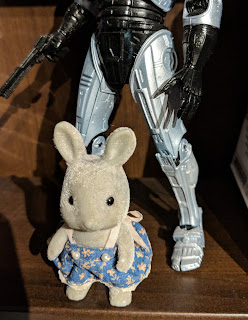Speaker for the Dead
Orson Scott Card, 1986
Hugo Winner - 1987
Premise: Follows Ender’s Game. Ender and Valentine have traveled the galaxy, time has passed, and now no one knows their connection to history. But a new colony has begun on a planet with an unknown intelligent species, and tragedy will draw Ender there to meet them.
Many celebrated authors have won more than one Hugo Award. But to date, the only other person to win the Best Novel award twice back-to-back is Lois McMaster Bujold (whose work I adore completely).
I addressed in my review of Ender’s Game the difficulty in returning to these books now, in 2016. It gets even harder here.
Because I loved this book.
I think it’s much better than Ender’s Game, although it needs that story as its prequel. It touches on more interesting issues, such as the nature of sentience, understanding across seemingly impossible barriers,and the individual perception of time and how it affects how beings relate to each other.
There is still a lack of imagination shown in how little aspects of human society have changed in thousands of years. To be fair, though, in 1986 it seemed a lot more likely that the Catholic Church could proceed unmoved for a few dozen more centuries. Also, a piece of the plot revolves on the fact that at least in this colony, married couples legally have no private files from each other, not even for work. (It’s framed in a more sexist way than it would actually work out, which is unfortunate.) It just made me think: wow, that is a) terrible for cybersecurity and employment, and b) terrible for people in bad relationships. A bad idea all around, but one that I’ll accept in the (half-closed-minded and handicapped by religion) future society as presented.
The exploration of time and perception almost goes unnoticed under the more overt struggle, but it’s intriguing and delicately done. The questions about alien morality and how humans should respond to sentient species are extremely well done. (Note, though: nothing groundbreaking, see The Snow Queen, Startide Rising and original Star Trek, among other things.)
I found the story moving, even though I find it more heartbreaking that the author has often seemed unable to apply in real life the morals in his fiction about compassion and understanding towards those who are different from you.
5 Conflicted but Honest Stars
Further Reading:
http://www.salon.com/2000/02/03/card/
http://thinkprogress.org/alyssa/2013/02/21/1619481/an-ethical-guide-to-consuming-content-created-by-awful-people-like-orson-scott-card/
http://www.wired.com/2013/10/enders-game/




Comments
Post a Comment
FYI: Most comments are moderated, and will not appear immediately.